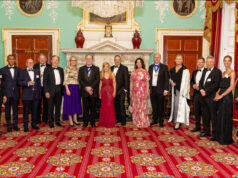The ongoing unrest in South Africa’s platinum mining sector has opened the door for Zimbabwe to expand platinum production in the coming months, particularly if the crisis in South Africa remains unresolved.
Officials in Zimbabwe, which is home to the world’s second largest platinum deposit behind South Africa, have estimated that Zimbabwe’s platinum output for 2013 will increase by 3 percent.
There are a number of reasons that make Zimbabwe’s platinum industry an attractive place for potential investors, especially when compared to its neighbour to the south. Zimbabwe has some of the lowest production costs in the world, due in large part to the nature of its platinum deposits. Platinum in Zimbabwe is generally found close to the surface, allowing companies to use mechanised, open cast mining, which is significantly less expensive than underground methods, which are used in South Africa.
Moreover, industry analysts have said that platinum production in Zimbabwe has the potential to increase by nearly 10 percent over the next few years.
The future growth Zimbabwean platinum industry still faces a number of challenges domestically. Zimbabwe’s infrastructure is very poor, particularly it’s electric grid. Platinum production has historically been hampered by spotty electricity.
However, investors say that the social and political issues in Zimbabwe presents the biggest obstacle for Zimbabwean mining companies. Many companies remain hesitant to invest in Zimbabwe because of the ongoing economic instability and uncertainty caused by the recent indigenisation legislation passed last year, which required foreign firms to handover a 51-percent share of its operations in Zimbabwe.
While it is unlikely that Zimbabwe will surpass South Africa in platinum production in the near future, the investment prospects in Zimbabwe remain very strong. And if the social and political environment stabilises following the 2013 presidential election, Zimbabwe may in fact challenge South Africa as the world’s number one platinum producer.









